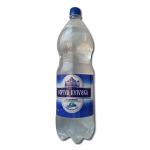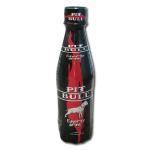
Other names for the additive (synonyms)
General Information
The food additive E290 (carbon dioxide) is used in the food industry as a preservative, acidity regulator, and antioxidant. In everyday life, additive E290 is better known as carbon dioxide.
In terms of physical properties, carbon dioxide is a colorless gas with no odor and a slightly sour taste. Additive E290 can dissolve in water to form weak carbonic acid. The chemical formula of carbon dioxide is CO2.
On an industrial scale, carbon dioxide is obtained from flue gases by absorbing it with potassium carbonate or monoethanolamine. The industrial gas mixture is passed through a solution of potassium carbonate, which absorbs the carbon dioxide, forming bicarbonate. The bicarbonate solution is then heated or exposed to reduced pressure, releasing pure carbon dioxide.
Carbon dioxide is also produced as a by-product in air separation units during the extraction of pure oxygen, argon, and nitrogen.
In small amounts, carbon dioxide can be produced in laboratory conditions by reacting carbonates with acids. For example, when chalk reacts with hydrochloric acid, unstable carbonic acid forms and then breaks down into carbon dioxide and water:
- CaCO3 + 2HCl = CaCl2 + CO2 + H2O
Carbon dioxide is a natural component of the atmosphere and is present in many living cells of the human body. For this reason, additive E290 is considered relatively harmless.
Effects on the Body
Risks of additive E290
Carbon dioxide enhances the absorption of various substances in the stomach lining. This explains the rapid intoxication effect from drinking carbonated alcoholic beverages.
Additionally, carbonated drinks are essentially a form of weak carbonic acid. Therefore, excessive consumption of beverages containing additive E290 is not recommended for people with stomach or gastrointestinal conditions (such as ulcers and gastritis).
There are also less serious “side effects” of carbonic acid exposure. Most people experience belching and bloating after consuming carbonated drinks.
Another common concern is that highly carbonated beverages may contribute to calcium depletion in bones.
Benefits of additive E290
Carbon dioxide is a natural substance that the human body has adapted to over thousands of years of evolution. It is present in the atmosphere and produced naturally in the human body.
Although carbon dioxide provides no direct benefit to human health, additive E290 is considered completely harmless.
Expert bodies, including JECFA (Joint FAO/WHO Expert Committee on Food Additives) and EFSA (European Food Safety Authority), do not set an acceptable daily intake (ADI) for carbon dioxide, as it is considered safe at any consumption level.
Uses
In the food industry, carbon dioxide is used as preservative additive E290 in the production of alcoholic and non-alcoholic beverages. Carbonic acid formed by the reaction of carbon dioxide with water has disinfecting and antimicrobial properties.
In baking, additive E290 can be used as a leavening agent to make baked goods fluffier.
Carbon dioxide is also widely used in winemaking. By regulating the amount of carbon dioxide in the wine must, fermentation can be controlled.
In addition, carbon dioxide can be used as a protective gas during the storage and transportation of various food products.
Other uses of carbon dioxide include:
- in welding as a shielding gas;
- in refrigeration systems as “dry ice”;
- in fire extinguishing systems;
- in gas-cylinder pneumatic systems.
Legal Status
Additive E290 is approved for use in the food industry in almost all countries worldwide, including Ukraine, the European Union, and the United States.

